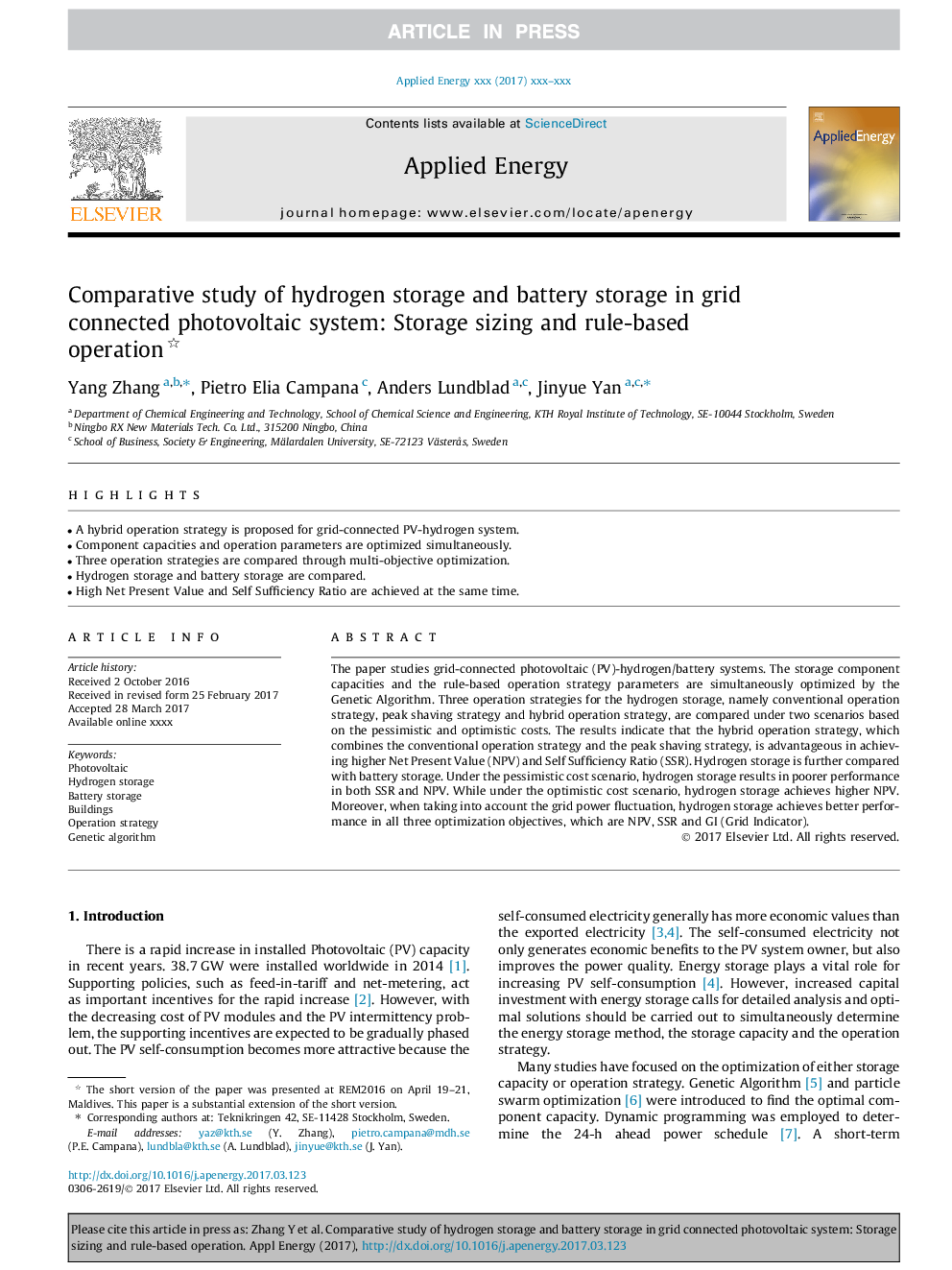| Article ID | Journal | Published Year | Pages | File Type |
|---|---|---|---|---|
| 4916028 | Applied Energy | 2017 | 15 Pages |
Abstract
The paper studies grid-connected photovoltaic (PV)-hydrogen/battery systems. The storage component capacities and the rule-based operation strategy parameters are simultaneously optimized by the Genetic Algorithm. Three operation strategies for the hydrogen storage, namely conventional operation strategy, peak shaving strategy and hybrid operation strategy, are compared under two scenarios based on the pessimistic and optimistic costs. The results indicate that the hybrid operation strategy, which combines the conventional operation strategy and the peak shaving strategy, is advantageous in achieving higher Net Present Value (NPV) and Self Sufficiency Ratio (SSR). Hydrogen storage is further compared with battery storage. Under the pessimistic cost scenario, hydrogen storage results in poorer performance in both SSR and NPV. While under the optimistic cost scenario, hydrogen storage achieves higher NPV. Moreover, when taking into account the grid power fluctuation, hydrogen storage achieves better performance in all three optimization objectives, which are NPV, SSR and GI (Grid Indicator).
Related Topics
Physical Sciences and Engineering
Energy
Energy Engineering and Power Technology
Authors
Yang Zhang, Pietro Elia Campana, Anders Lundblad, Jinyue Yan,
